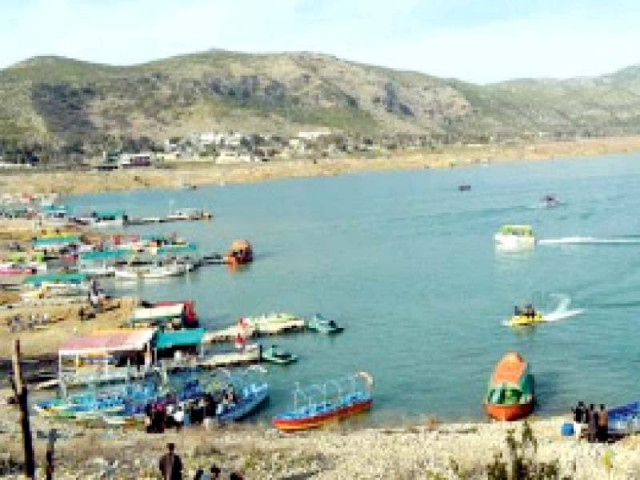Pindi water crisis likely to intensify in next 48 days
WASA MD urges citizens to use water with care

The water crisis in Rawalpindi is likely to intensify in the next 48 days due to excessive reduction in water discharge from tube wells as groundwater levels fall in the twin cities and depletion of water reserves in Khanpur Dam due to fewer monsoon rains.
As the level of water reserve in Khanpur Dam fell from 1,982 feet to 1,938 feet, the Capital Development Authority (CDA) has demanded to immediately divert agricultural water from the dam to ensure drinking water supply to Rawalpindi and Islamabad.
The letter written by CDA to dam officials states that water storage has reduced to an alarming level and there is a danger of severe drinking water crisis in the twin cities in the next seven weeks.
It added that according to the 1991 agreement, even under the National Water Policy 2018, the supply of drinking water must be given priority. In view of this situation, an urgent decision is needed to ensure drinking water supply to the twin cities.
Meanwhile, the Water and Sanitation Agency (WASA), in support of the CDA, issued an advisory to the cities to consume water carefully.
WASA Managing Director Raja Shaukat Mahmood said if the supply is affected, a water crisis may arise in Rawalpindi. The areas. that will face great difficulty due to the situation include Pirwadhai, Dhok Hasso, Dhok Mangtal, Shamsabad, and Sadiqabad.
The WASA MD said that the groundwater level in most of these areas has gone down due to which water supply from tube wells is not possible.
Read Experts stress need for water conservation
Moreover, supply compared to demand has already been reduced by 40 to 50 per cent in Rawalpindi and Chaklala cantonment areas.
Rawalpindi and Chaklala Cantonment Boards have a daily water supply of 11 million gallons from Khanpur Dam while five million gallons of water are available daily from tube wells. However, the demand of citizens has reached 40 million gallons compared to 16 million gallons of daily water supply.
Water resources experts are of the view that the water supply system from Khanpur Dam, Rawal Dam and tube wells in the twin cities has practically failed and there is a danger that the system could completely collapse at any moment because of the ever-increasing demand for water.
The only supply option according to the demand for water for next year is 200 million gallons daily for the twin cities in the first phase before Ghazi Bharuta and in the second phase, this supply can be increased to 400 MGD per day.
The plans to bring water from Ghazi Bharuta to the twin cities have been under consideration for the past 17 years, but the project has not moved beyond the meeting stage.
Published in The Express Tribune, August 26th, 2021.



















COMMENTS
Comments are moderated and generally will be posted if they are on-topic and not abusive.
For more information, please see our Comments FAQ